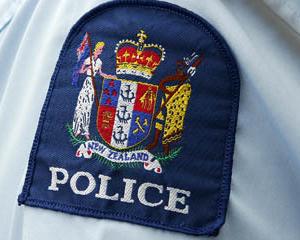
Wellington City Council staff yesterday confirmed events in Dunedin would be a test case for dealing with their own occupation, while Christchurch and Auckland councils were also monitoring developments.
Dunedin City Council staff on Tuesday served trespass notices on protesters involved in the New Zealand offshoot of the Occupy Wall Street movement, which has spread globally from the United States.
The Dunedin protesters were given an 8pm deadline to quit their encampment, but refused to leave, paraded around the Octagon and cheered when told police would not enforce the order.
The stand-off continued yesterday, with Dunedin City Council chief executive Paul Orders saying the council's position was "clear" and the onus was on police to enforce council bylaws.
"We believe that the protesters are occupying the Octagon in a way that contravenes bylaws, and on that basis clearly the police have to consider whether they enforce the trespass notice."
Dunedin-Clutha area commander Inspector Greg Sparrow responded in a statement, saying police had to balance competing interests and would consider their legal position before deciding whether to act.
Council staff received a "significant number" of emails and phone calls about the protests yesterday, while online visits to the Octagon web camera spiked from about 300 per day to nearly 12,000 on Tuesday.
Mr Orders said discussions with police were continuing yesterday, but he could give no indication when - or if - action might follow.
However, the Bill of Rights allowed only for "lawful protest in a lawful manner", he said.
"What we're talking about here is the fact that the protesters' camping actions are unlawful. That's the heart of the matter from the council's point of view."
The council would consider other legal options if police declined to enforce the trespass notices, he said.
Local Government New Zealand governance manager Mike Reid, of Wellington, said the Local Government Act gave councils the power to enact and enforce bylaws.
A breach of a bylaw was a breach of the Act, but enforcement was a "grey area" in this case, he said.
The Octagon protesters had been warned they were in breach of the Reserves Bylaw and the Camping Control Bylaw, which together prohibited camping on reserves or any other public place without prior council approval.
Councils could enforce some bylaws - such as issuing infringement notices to freedom campers - but did not have the "coercive power" to forcibly remove protesters, Mr Reid said.
The Wellington City Council was taking "great and close interest" in Dunedin's approach before dealing with its own occupation beside Civic Square, spokesman Richard MacLean said.
"If we are going to act, bitter experience in the past of situations like this has taught us that you have to be really, really careful about the legal status of what you're doing."
Unlike Dunedin's high-profile protest, Occupy Wellington protesters were "tucked away" on the City to Sea bridge, and the council had no deadline for their removal, he said.
However, there was also "no intention" of allowing the protesters' camp to become a permanent settlement, as they were "basically privatising public land", he said.
Occupations were also taking place in other New Zealand centres, one group camping in Auckland's Aotea Sq and another on the southern end of Christchurch's Hagley Park.
Auckland Council staff were also following events in Dunedin, although a spokesman said they hoped to negotiate an end to the Aotea Sq protest "as soon as possible".








